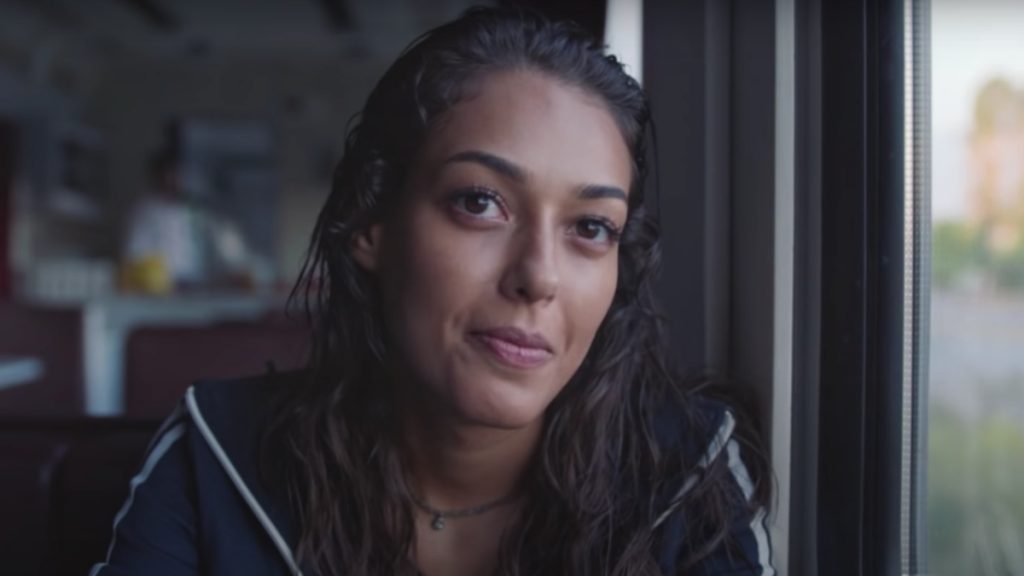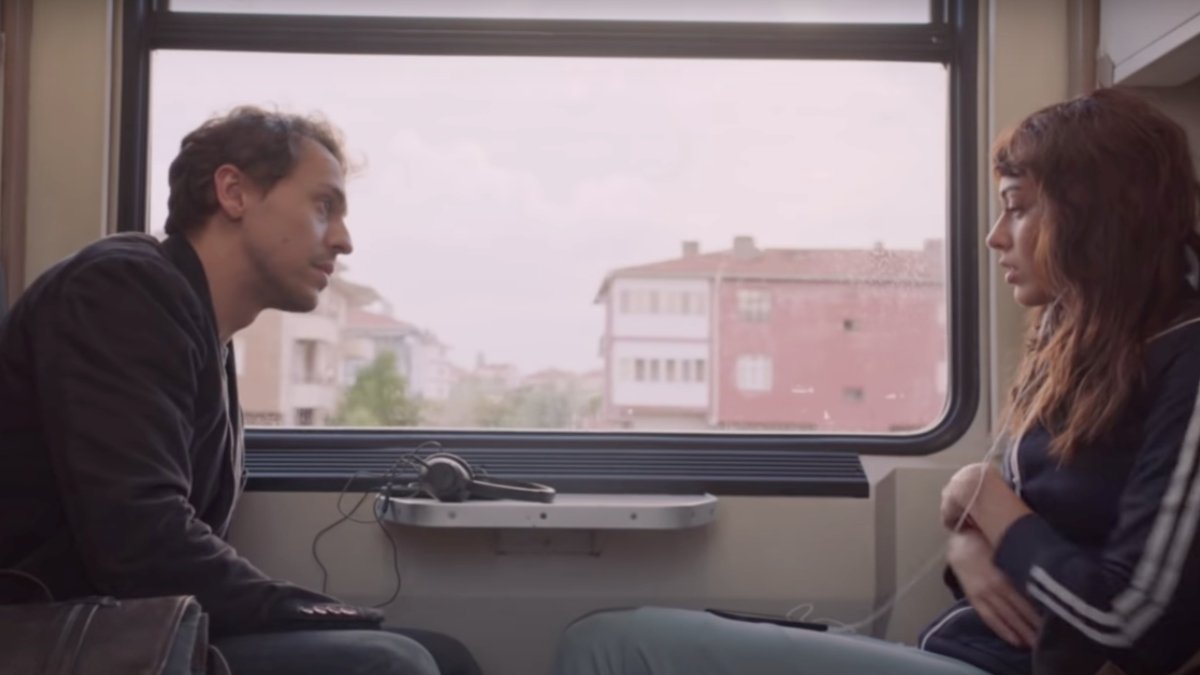Unfortunately, we still don’t have an original Turkish production on Netflix to be proud of.
Netflix has a few original series from Turkey, and One-Way to Tomorrow (Yarına Tek Bilet) is the first Turkish film. Yet, it is not an original work, instead, it is an adaptation of a Scandinavian film: Hur man stoppar ett bröllop by Drazen Kuljanin. I wonder how Kuljanin’s version is like compared to this one; the director aims to show both at Istanbul Film Festival, if interested.
The film follows Leyla (Dilan Çiçek Deniz) and Ali (Metin Akdülger) on a train to İzmir. The two get to know each other and confront their pasts on the journey.
The film takes place mainly in one location with two characters. Maybe because the relationship between these two characters set the whole dramatic structure, the film doesn’t have many compelling arguments. The film is obviously shot on a low budget, but it doesn’t necessarily mean the story also needed to be cheap. The film has indie qualities to it, but I can call it an attempt at best.
I wouldn’t be this harsh on my criticism, but an interview with the director reveals what has been prioritized in the making of the film, and I will get back to it.

The most memorable aspect of the film is probably the music. The film features seventeen songs from the 90s to today to set up the mood before and after sequences. Also, what’s with the zooms? The first few minutes of the film felt like Arka Sokaklar; randomly zooming in to the faces. Later on in the movie, either they didn’t do it as often or worse, I got used to it.
The director Ozan Açıktan explains he has been meaning to shoot this script for more than six years. He is skilled when considered the technical aspects of the film. For instance, even though most scenes take place in the same compartment, the film doesn’t feel claustrophobic. The view from the windows is not changing in a way to disturb the continuity of the shots.
The director explains that he intended the film to take place in a contained environment, the train compartment so that he could express himself artistically with few determinants. In that sense, this film is like a personal project for him. Regarding all the negative feedback he receives on the film, he admits he had no box office worries as Netflix would stream it. He had no expectations of coming up with a great film. He says he wanted to make his own film without worrying about getting back the money he put. Too honest?
It is a fact that the first 10-15 minutes of the film is painful to watch. For the Turkish viewer, those lines are not natural and sound very much forced. It is not how we speak. Also, the attitude they bring the film at the very beginning is hard to follow. Why would I root for these characters? What’s up with Leyla? Why so angry? Nobody acts like that to a stranger, especially if they are free-rider on the train. And for Ali, nobody tries to interact with a stranger with Leyla’s attitude, especially if they are in love with someone else.

The weird thing is that the director knew all along that the first 15 minutes of the film didn’t work. He had been receiving the same feedback even before production. What’s worse is, instead of admitting the script wasn’t ready yet, Açıktan blames the cinematic expression. He says we wouldn’t feel this way if he could introduce Leyla as if in a novel. What he claims “impossible” in cinema is exactly what the skilled scriptwriter does. It is not an excuse not knowing the character’s background initially, revealing it slowly is the craft.
The director openly asks for some patience from the viewers as the beginning doesn’t work. (As if the remaining is so amazing that makes you forget how the journey started.) He also claims that the film has trouble absorbing the viewer in because it is not mainstream. What? We could believe if we haven’t seen any indie film, but please. Don’t blame the viewer for the parts that don’t work!
Açıktan says that he didn’t intend to make a statement of Turkish films through One-Way to Tomorrow. Maybe he should have. After all, this is the first Netflix original Turkish film. Perhaps he should have taken the responsibility as this is probably the first original Turkish film to find such a large audience. There is no censorship on Netflix, no boundaries to creativity, and this being the result is, sadly, a disappointment.
